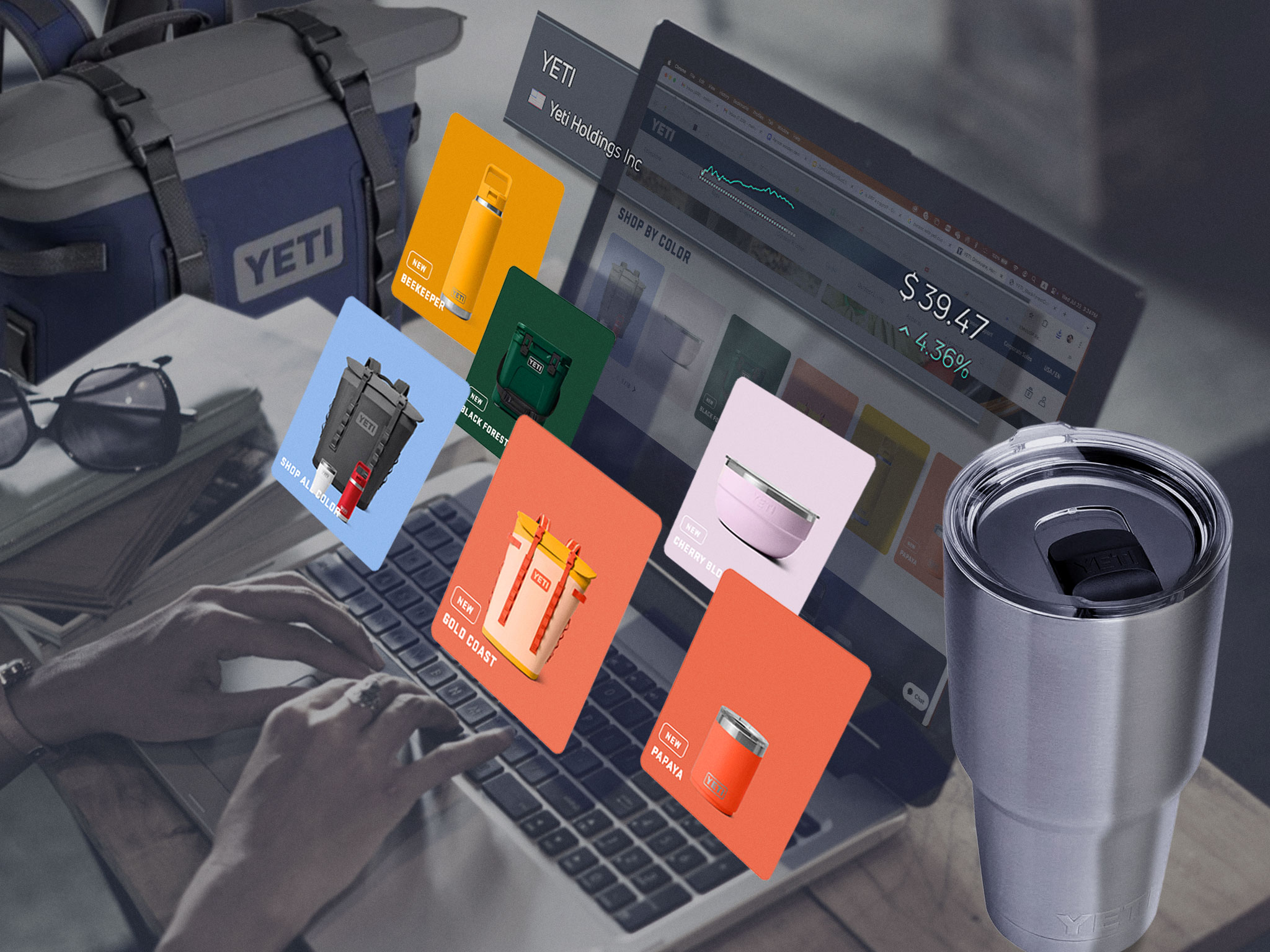Known for its ubiquitous stainless steel tumblers, Yeti Holdings (NYSE: YETI) is counting on strong international sales to continue the company’s growth.
The Austin, Texas, manufacturer of coolers and insulated drinkware has seen its shares rise by 34% in the past three months, as sales overseas also have increased.
Yeti reported its international markets produced double-digit revenue growth, especially in Australia and Europe during the first quarter. Its international sales rose 22%, while sales in the U.S. fell by 2% as consumers pulled back on spending.
The company makes some of its sales directly to consumers, which has remained a popular strategy for brand engagement and increasing sales. Revenue in the direct-to-consumer division rose by 4%, led by its coolers and equipment segment. Overall sales of its coolers and equipment segment increased 17%, due to growth in both Yeti’s U.S. and international regions. That was “driven by strong performance in bags and hard coolers,” the company said.
The rise of social media platforms such as TikTok has spurred consumers to shop more, encouraging them to buy the latest trendy product. Yeti’s fans are also giving sales of Yeti’s camino carryall tote a huge boost on TikTok.
Fans have hailed the bags as the “beach bag of the summer” and are posting videos of how their Yeti bag was decorated with bows and scarves. The cheapest one starts at $130 while medium-sized bag costs $150. The largest one will set you back by two Benjamin Franklins. Despite the $200 to $220 hefty price tag, over half a dozen colors are sold out on the website.
The popularity of its bags, which are sold out in all sizes depending on the color or pattern, has “most likely” pushed up shares of the company, which increased by over 12% on the past five trading days, Jefferies analyst Randal Konik told MarketWatch.
The popularity of the bags has produced Yeti’s “viral” moment, which is what management sought even if it was unintentional, he said.
“This is the latest signal that new products are resonating with consumers and driving demand,” Konik wrote in a research note.
While most fans of Yeti are familiar with the company for selling pricy water bottles and expensive coolers, the company made a strategic move in 2024 when it hired Layne Rigney as head of soft goods. Rigney is a veteran of consumer brands and had previously served as CEO of Osprey Packs, which sells backpacks and other bags, and was a president at CamelBak, which sells hiking packs and water bottles for outdoor enthusiasts.
Yeti’s management is focusing on selling bags, making them a “key growth pillar,” he wrote.
“This success marks another proof point in [Yeti’s] ability to drive innovation and scale its product portfolio beyond its core, supporting more growth ahead,” Konik added in the research note.
Yeti’s branding and marketing has been highly successful even before rivals such as Stanley cup’s tumblers with its large handle and straw went viral on TikTok, drawing in billions of views and sales from shoppers who had never heard of the company before.
But this phenomenon begs the question of whether campers, hikers and nature fans are successful in transforming the idea of being outdoors as a cool or hip activity or if city dwellers just want to participate by shelling out $200 to $800 for one of their coolers for weekend barbecues and roadtrips.
The company’s success with its products in the U.S. appear to be translating abroad, especially in Canada and Australia and also in Europe and Asia, which are newer targets for Yeti, Konik wrote. Yeti’s latest focus on growing its sales is in the U.K., Germany and Japan.
The company’s international growth is not new – it increased by 27% during the fourth quarter and by 31% for the full year 2024.
The company’s exposure to tariff-related costs impacted its earnings, but CEO Matt Reintjes said Yeti is “aggressively diversifying our sourcing out of China.”
Yeti plans to have “limited exposure” to future goods sourced from China of “less than 5%” for the U.S. market, he said. But Reintjes did not give a timeline of when the reduction of materials would occur. Yeti’s cash on hand grew to $259 million from $173.9 million. The company reports its second quarter earnings on Aug. 7.
Shares of Yeti have experienced volatility in the past due to supply chain and inflationary pressures. Whether the stock can improve from its current price of $37.83 remains to be seen.




Comments